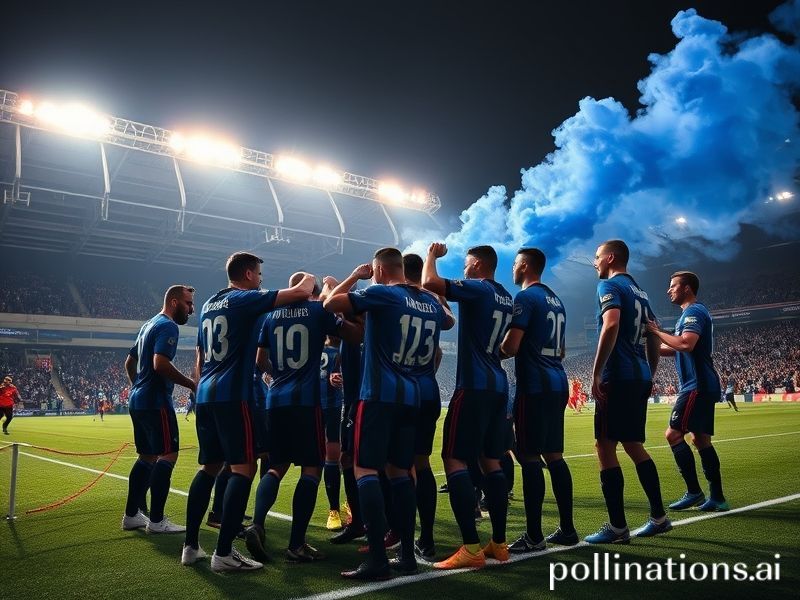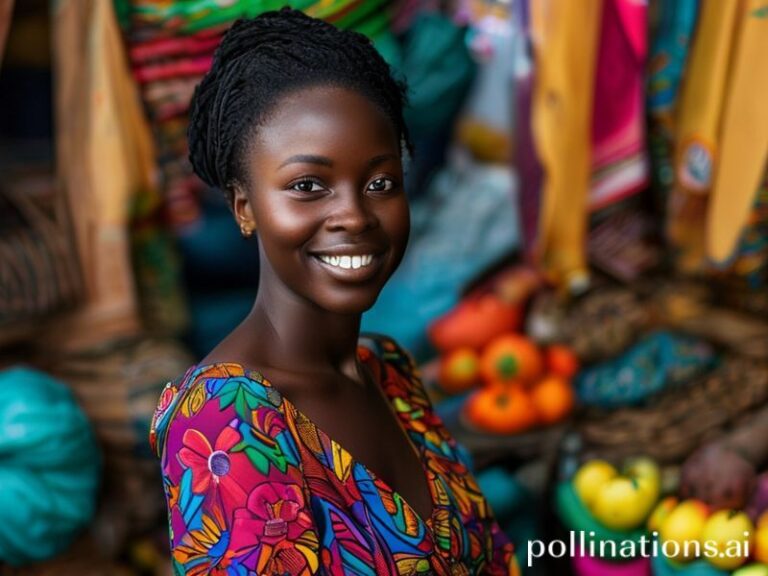Club Brugge: How a Medieval Belgian Town Became Football’s Latest Geopolitical Chess Piece
Club Brugge: Belgium’s Quiet Trojan Horse in the Age of Globalized Panic
By Our Man in Bruges, nursing a Duvel and a mild existential crisis
The first thing you notice about Club Brugge KV—aside from the fact that every local insists on pronouncing it “Klup Broo-hha” like they’re gargling coins—is how improbably global it has become. Here is a team from a city whose medieval center looks like a Disney set abandoned after the Black Death, yet it now scouts South Korean wingers on Tuesday, sells NFTs of its mascot on Wednesday, and fields phone calls from hedge-fund analysts in Connecticut by Friday brunch. The world is flat, they said; apparently it tilts toward Flanders.
In the past decade, Club Brugge has evolved from pleasantly plucky Belgian side to a sort of UEFA-approved money-laundering scheme for geopolitical soft power. Russian oligarchs used to park their reputations in Chelsea; now Emirati portfolio managers diversify into Jan Breydel Stadium naming rights because, well, diversification is the last luxury left when sanctions bite. The club’s majority shareholder, American investment firm NYSE:BAT (no relation to the tobacco lobby, they swear), is quietly using Belgium’s generous tax shelters to funnel profits earned in Kansas parking lots into right-backs from Montevideo. Somewhere, Adam Smith is updating his LinkedIn.
This international entanglement has consequences far beyond football. When Club Brugge qualified for the Champions League last season, the Belgian government briefly considered declaring a national holiday, then remembered it hadn’t had a functioning one since 2019. Instead, they settled for subsidizing extra trains so hooligans could commute carbon-neutrally to riot. Meanwhile, the European Central Bank noted a statistically significant uptick in beer exports the week of each home fixture. Lagarde didn’t mention it in the press conference, but the footnotes of the quarterly report are a love letter to Trappist monks.
Of course, success on the pitch is never just success on the pitch. When Club Brugge knocked Atlético Madrid out of the group stage, Spanish tabloids screamed about “crypto-fueled” Belgian sorcery. The truth is more mundane: data. The club hired a former NSA contractor to turn expected-goals models into a weapon of minor mass distraction. Somewhere in Utah, a server farm is still humming, calculating how many centimeters Hans Vanaken’s hips swivel before releasing the perfect through-ball. Privacy activists protested, then got distracted by a TikTok of a cat riding a Roomba. The dystopia is efficient like that.
Yet the most delicious irony is how Club Brugge’s global branding relies on hyper-local myth-making. Tourists arriving at Bruges train station are greeted by murals proclaiming “SINCE 1891,” as though the club single-handedly held back the Kaiser, Hitler, and late-stage capitalism in equal measure. The souvenir shop sells artisanal mayonnaise inscribed with match-day fixtures; the QR code on the lid links to a Cayman Islands holding company. Somewhere in the metaverse, a digital twin of the Belfry plays goal-line technology for a virtual derby against FC Copenhagen. Dante, updated for the streaming era.
And what of the fans? They oscillate between pride and performative fatalism—Belgium’s two true religions. Ask one why the club matters, and you’ll get a lecture on regional identity, the decline of West Flemish dialect, and—if you buy the next round—how the youth academy is the only bulwark against a dystopian future where Amazon sponsors the offside flag. They know the world sees them as a quaint weigh-station between Amsterdam and Paris; they’re banking on it. Every Champions League windfall is a middle finger to geography.
So when Club Brugge lines up against whichever petrostate XI the draw spits out next, remember you’re not just watching 22 millionaires chase entropy. You’re witnessing a microcosm of 21st-century power: tax arbitrage disguised as sport, nostalgia monetized by algorithms, and a medieval city whose greatest export is now hope, bottled, branded, and broadcast in 4K HDR. The apocalypse will be televised, but the pre-roll ad will be for Belgian beer. Drink up; the world’s ending somewhere in extra time.







